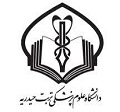(2019) Reactive oxygen species in colorectal cancer: The therapeutic impact and its potential roles in tumor progression via perturbation of cellular and physiological dysregulated pathways. Journal of Cellular Physiology. pp. 10072-10079.
Full text not available from this repository.
Abstract
Reactive oxygen species (ROS) are produced by mitochondria during metabolism. In physiological states, the production of ROS and their elimination by antioxidants are kept in balance. However, in pathological states, elevated levels of ROS interact with susceptible cellular target compounds including lipids, proteins, and DNA and deregulate oncogenic signaling pathways that are involved in colorectal cancer (CRC) carcinogenesis. Although antioxidant compounds have been successfully used in the treatment of CRC as prevention approaches, they have also been shown in some cases to promote disease progression. In this review, we focus on the role of ROS in gastrointestinal homeostasis, CRC progression, diagnosis, and therapy with particular emphasis on ROS-stimulated pathways. © 2018 Wiley Periodicals, Inc.
| Item Type: | Article |
|---|---|
| Keywords: | antioxidants; colorectal cancer; progression; reactive oxygen species |
| Page Range: | pp. 10072-10079 |
| Journal or Publication Title: | Journal of Cellular Physiology |
| Journal Index: | Scopus |
| Volume: | 234 |
| Number: | 7 |
| Identification Number: | 10.1002/jcp.27881 |
| Depositing User: | دکتر محبوبه عبداللهی |
| URI: | http://eprints.thums.ac.ir/id/eprint/1157 |
Actions (login required)
 |
View Item |



